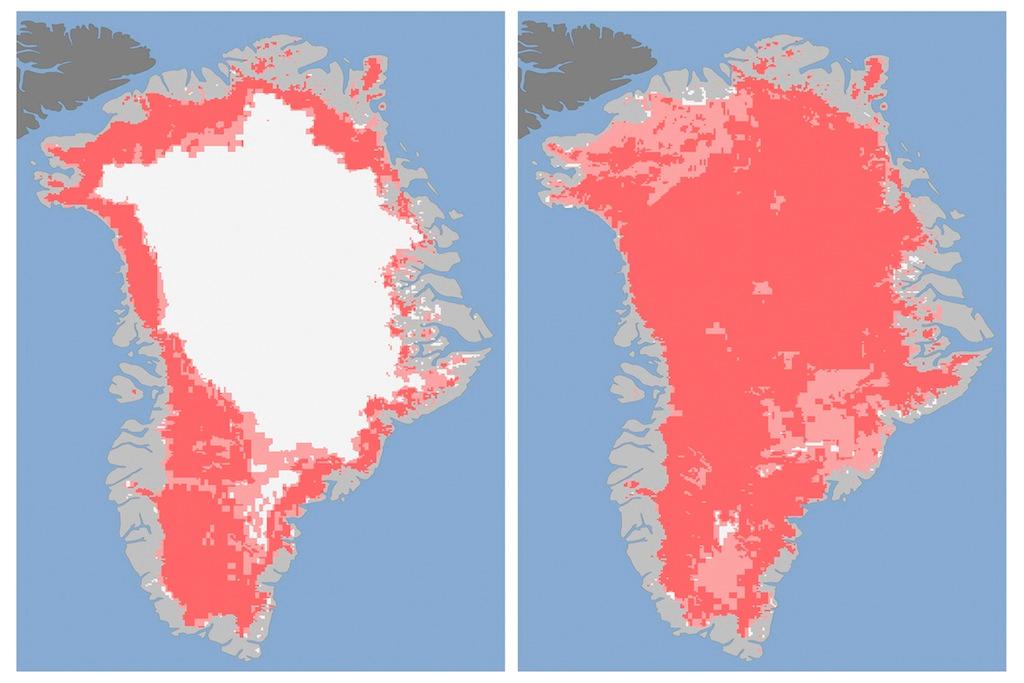Greenland ice melt hits rare levels
Greenlands ice sheet on July 8 (L) and July 12 (R) is seen in these NASA handout released July 24, 2012. Measurements from three satellites showed that on July 8, about 40 percent of the ice sheet had undergone thawing at or near the surface. In just a few days, the melting had dramatically accelerated and an estimated 97 percent of the ice sheet surface had thawed by July 12. In the image, the areas classified as probable melt (light pink) correspond to those sites where at least one satellite detected surface melting. The areas classified as melt (dark pink) correspond to sites where two or three satellites detected surface melting.
New images from three satellites show large scale surface ice melting in Greenland, according to MSNBC.
Really, really, large scale.
It’s unprecedented, at least in the 20th and 21st centuries, according to USA Today. The last time Greenland’s Summit station saw this kind of melting, it was 1889.
"This was so extraordinary that at first I questioned the result: Was this real or was it due to a data error?" said one researcher, according to Newser.
Of course, it’s the summer, and some ice loss is expected. The going rate is about 50 percent. But from July 8 to July 24, 97 percent of Greenland's surface ice melted, according to Live Science.
The sultry culprit behind the melt is what's known as a “heat-dome." Live Journal interviewed University of Georgia, Athens climatologist Thomas Mote, who said a pocket of warm air above Greenland had "coincided with the extreme melt."
Time spoke with NASA's chief scientist Waleed Abdalati, who said such massive melting "makes you sit up and ask what's happening. It's a big signal, the meaning of which we're going to sort out for years to come."
It's worth noting that a giant iceberg the size of Manhattan separated from the Petermann Glacier in northern Greenland earlier this month.
More from GlobalPost: Greenland: Giant iceberg breaks from Petermann Glacier
"If we continue to observe melting events like this in upcoming years, it will be worrisome," Lora Koenig, a glaciologist, told the Guardian.
We want to hear your feedback so we can keep improving our website, theworld.org. Please fill out this quick survey and let us know your thoughts (your answers will be anonymous). Thanks for your time!
